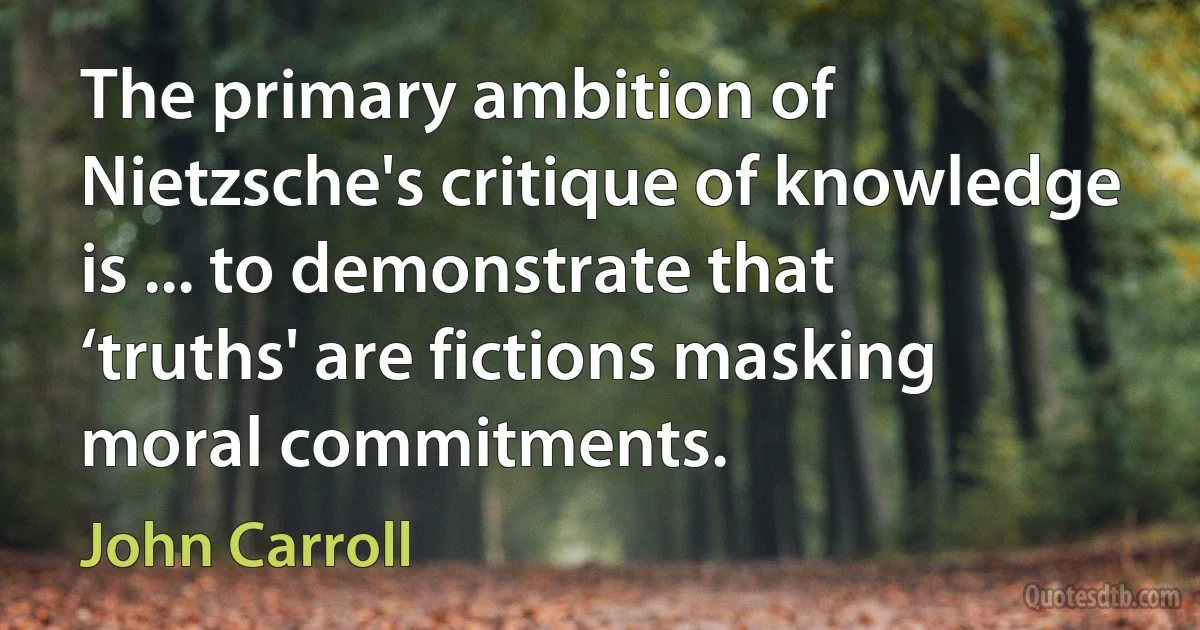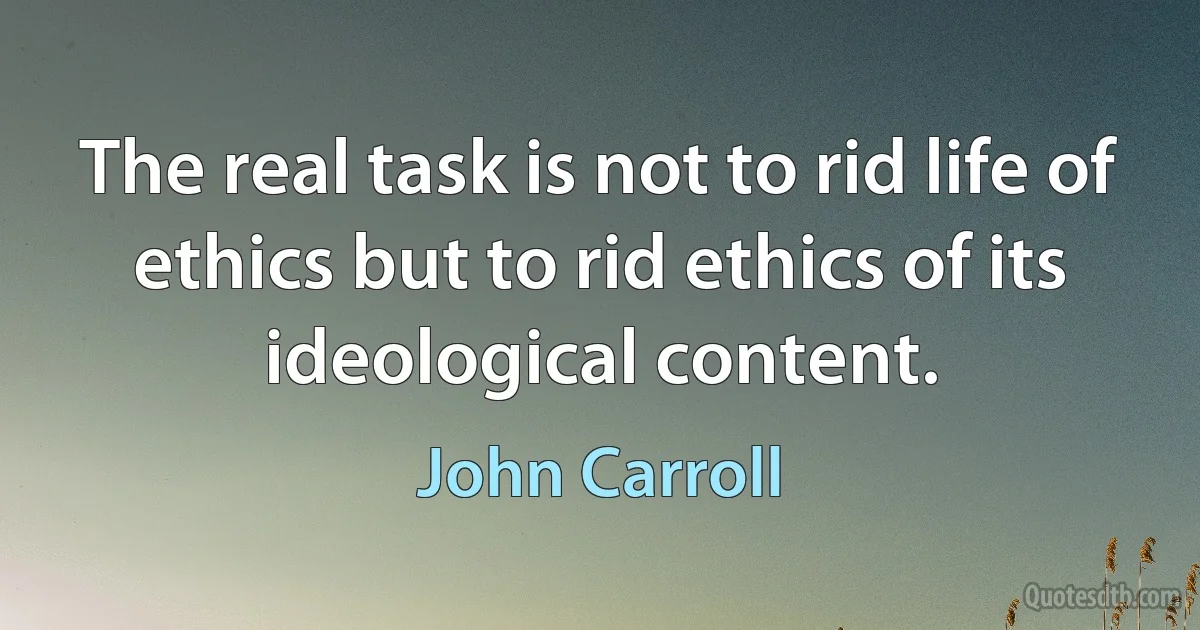John Carroll quotes - page 2
Dostoevsky's underground man ... observes his contemporaries striving to establish false goals where there are no naturally generated ones. ... He argues they should be conscious and honest enough to recognize that the goal itself is not an absolute, and probably not even important. A strong attachment to the telos indicates that the spontaneous enjoyment the child once took in road-building has waned.

John Carroll
What stands most explicitly as critique in Nietzsche's late work in not a development from earlier interests but a return to two problems of enduring personal involvement for him, those of Wagner and of Christianity. Der Antichrist, to take one case, is not a response to a resuscitating public interest in Christian religion; it is primarily a renewed attempt to resolve for himself the question of piety.

John Carroll
There is a strain in Marx of the cleric, of the vulgar moralist. He paints the capitalist and the bourgeois as incarnations of evil; it is they who are responsible for the woes of mankind. The dismissal of the individual's responsibility for his own misery is the quintessence of clericalism.

John Carroll
Stirner's political praxis is quixotic. It accepts the established hierarchies of constraint as given. ... Not liable to any radical change, they constitute part of the theatre housing the individual's action. ... The egoist uses the elements of the social structure as props in his self-expressive act.

John Carroll
Nietzsche ... explicates his preferred distinction between good and bad individuals as non-condemnatory of the latter. A ‘bad person' is merely devoid of what Nietzsche personally considers to be noble or virtuous qualities; he is not morally evil. Nietzsche's aim is ... to defuse morality of reactive emotion. ... It would be futile, tactless, and cruel, he suggests, to try to change a bad person, one with whom one does not empathize; his formula advises: ‘Where you cannot love, pass by'. No on should be blamed for what he is; there is no point in lamenting fate.

John Carroll
The possibility of a genuine metatheory of morality is not available. Even psychology has its ethical presuppositions. ... A metatheory of morality would be legitimate only if the existence of a hierarchy of absolute, and hence unconditioned, truths were established. They would then provide a framework of supra-ethical categories. The primary ambition of Nietzsche's critique of knowledge is to expose just such an exercise ... as sleight of hand, an efficacious deception. This critique sets out to demonstrate that ‘truths' are fictions masking moral commitments.

John Carroll
Copernicus and Darwin undermined man's image of himself as the ‘measure of all things'. Newton provided him with a new hope ... that of ‘man as the measurer of all things'. Thus the possibility was revealed to man, who had been disinherited from being at the center of the universe, that he might be able know how to work himself back there. Science, at the same time it destroyed his ontological security, gave him the tools for reapproaching Eden.

John Carroll
The estranged ego projects its own disorder on to society and expects the restructuring and integration of the self writ large, the society, to reflect back on to the source of consciousness. Stirner regards this flight from self as a form of suicide, the dissolution of identity and uniqueness.

John Carroll



